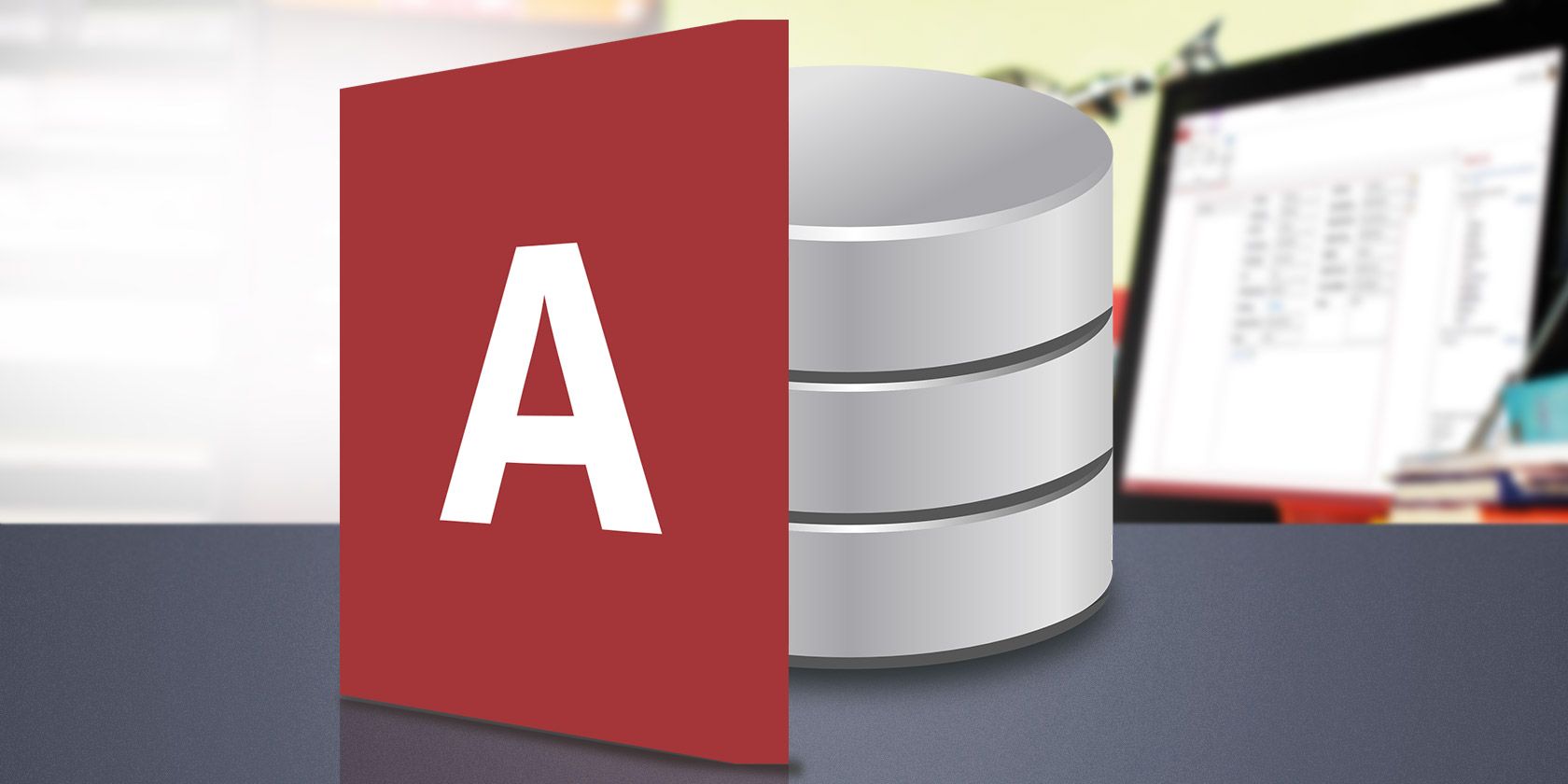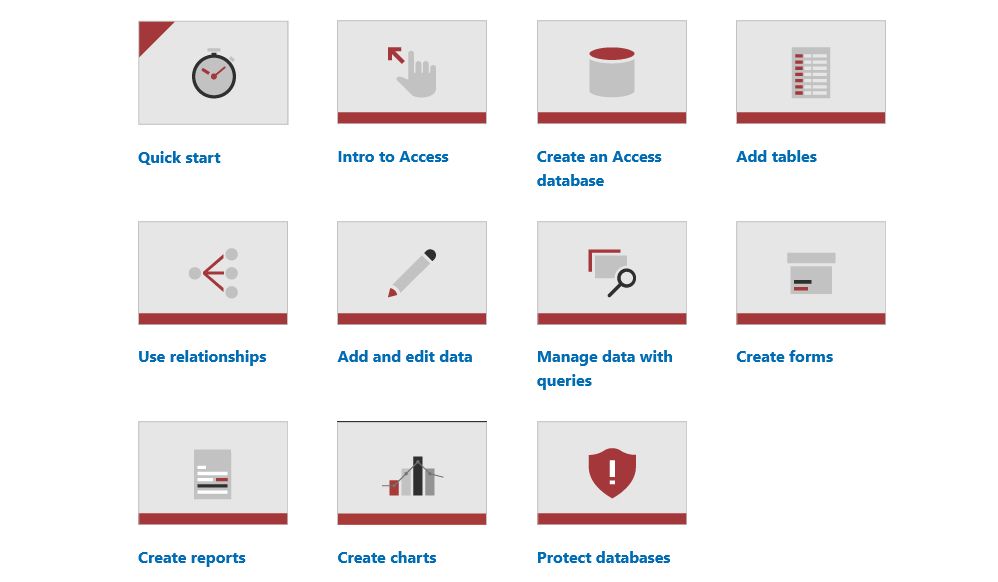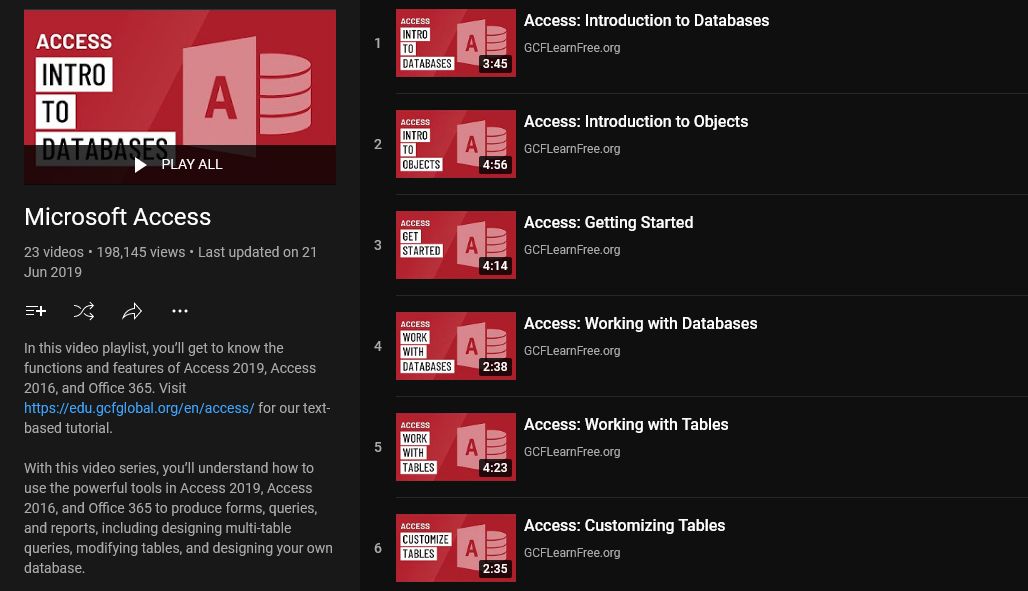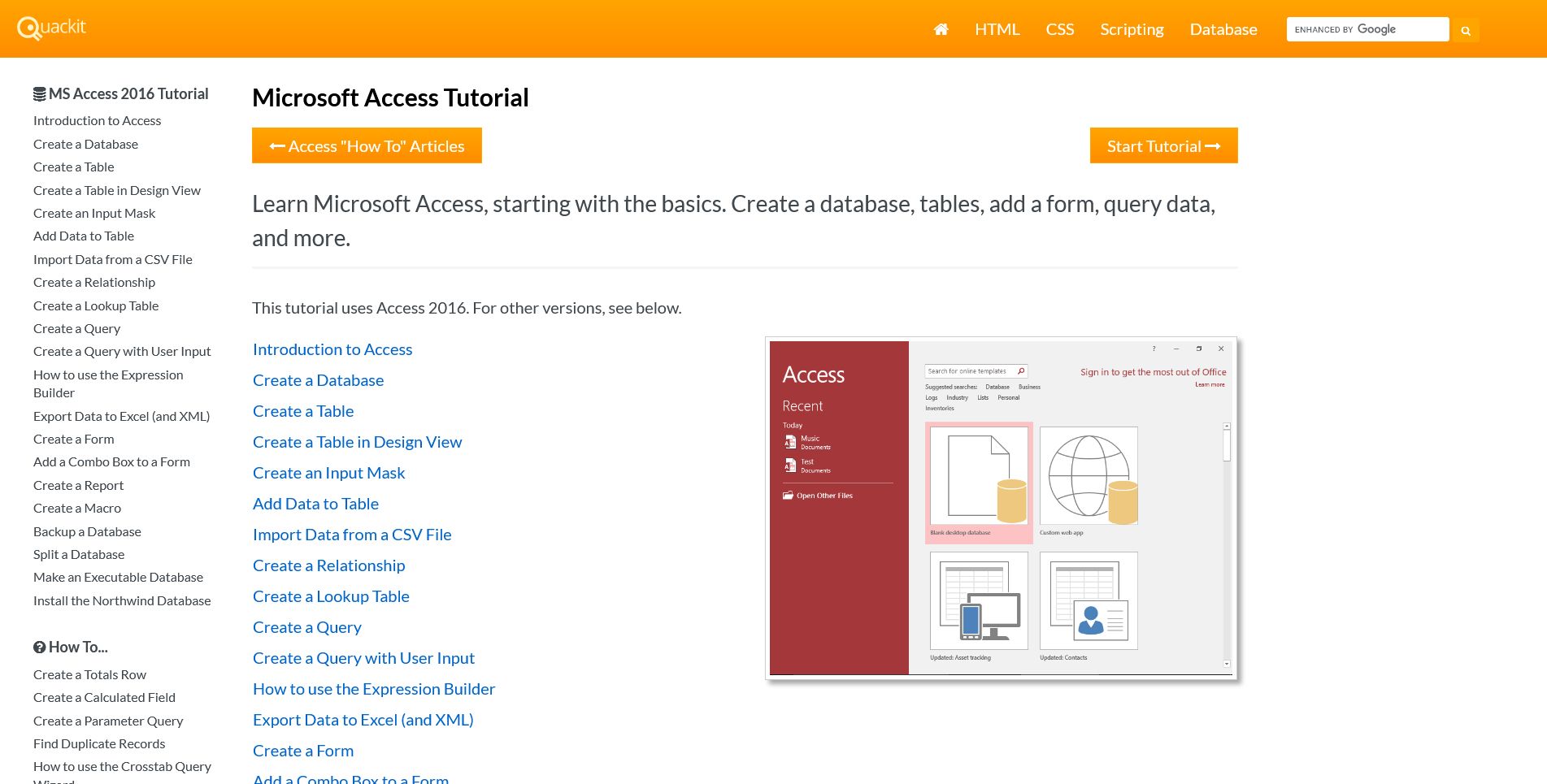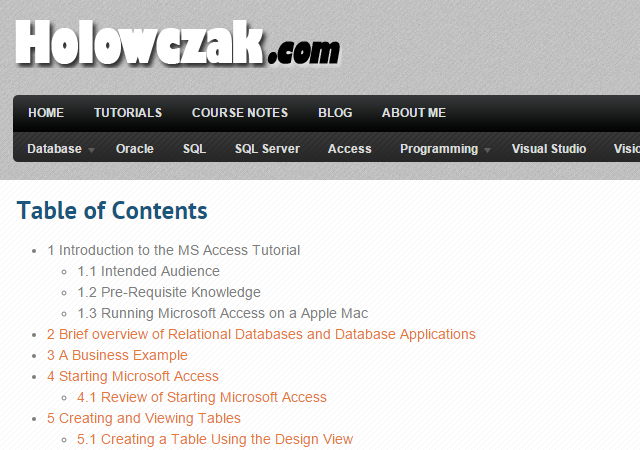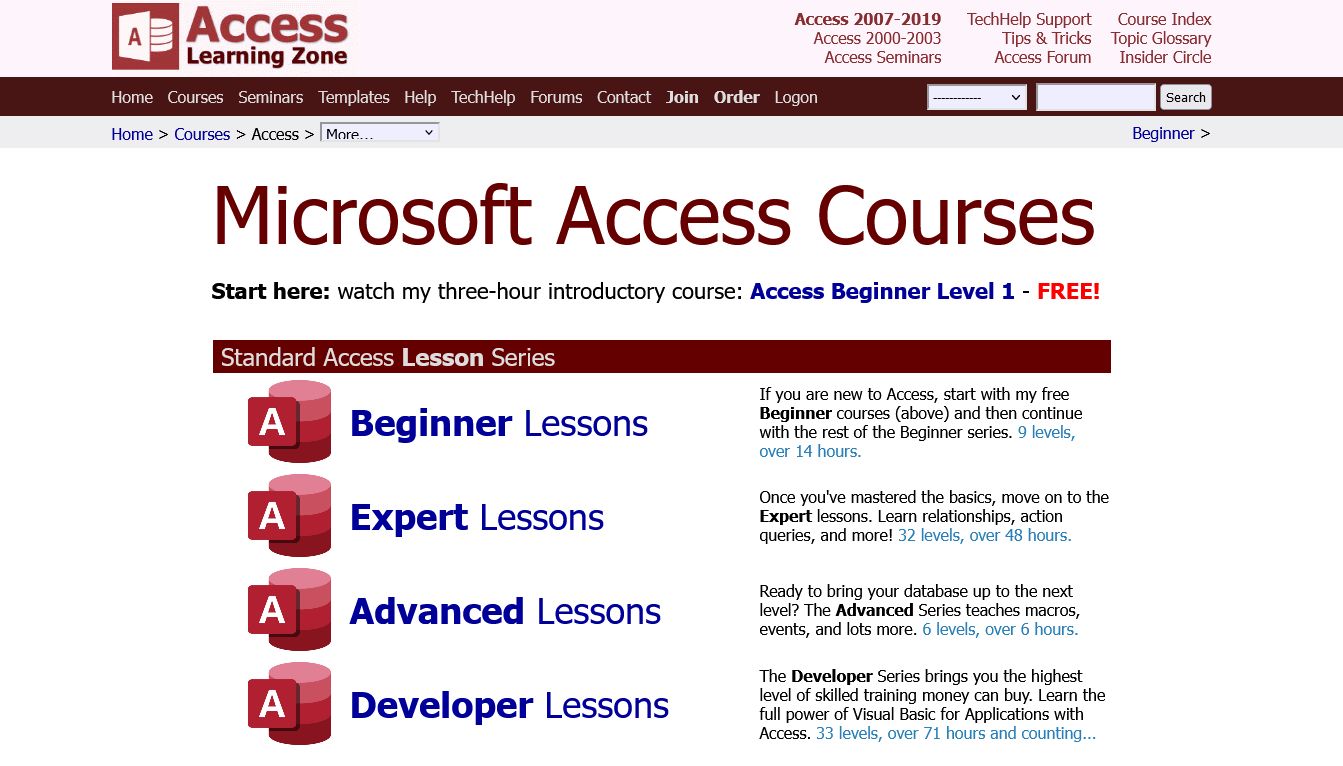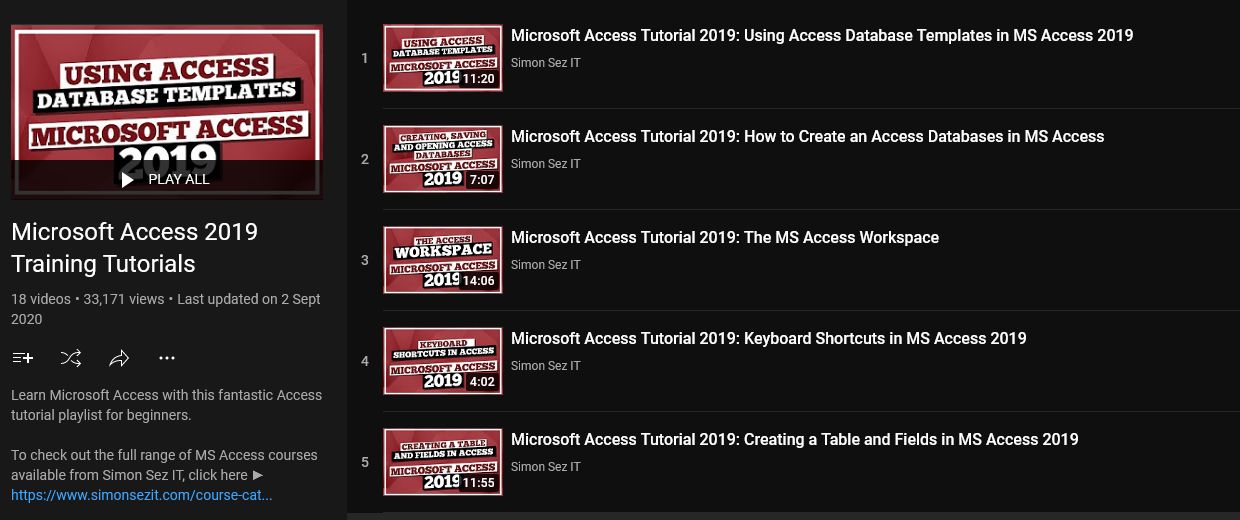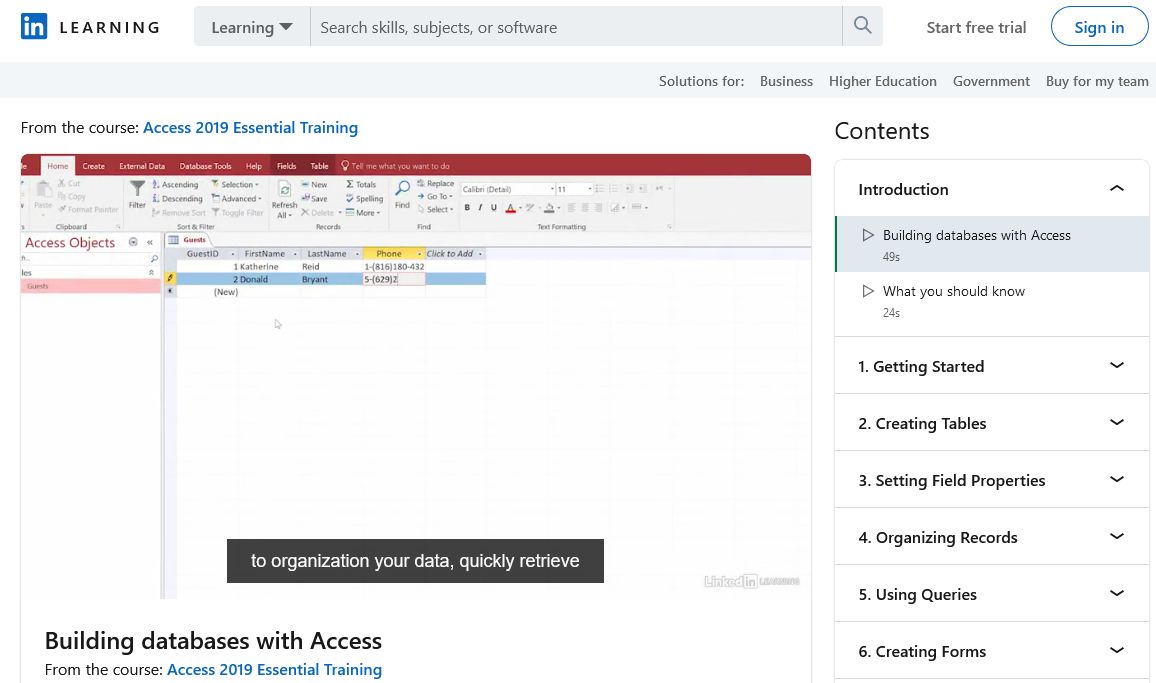At first glance, Microsoft Access looks a lot like Microsoft Excel—both involve copious amounts of data that's organized into rows and columns. But beyond that, Access and Excel are completely different.
Long story short, Excel is for data analysis while Access is for data management. It's a subtle but crucial distinction that means Excel is more useful when you need to crunch numbers, while Access is better when you have to manage a lot of data that's either non-numeric or relational in some way.
While there are tons of resources for learning Excel, the Microsoft Access side is far sparser. That's why we've rounded up a free courses and tutorial series that will introduce you to Microsoft Access, why it's useful, and how to make use of it.
1. Microsoft's Access Training
Seeing as how Access is a Microsoft product, who better to teach you the ins-and-outs of how this program should be used? Fortunately, Microsoft provides a series of online videos that cover several topics for beginners and intermediates.
The videos cover the key concepts and principles that make Microsoft Access what it is, and subsequent videos explore skills like database creation, querying for data, and using advanced query parameters. A text walkthrough supports each video, with screenshots to guide you, so you can follow those steps at your own pace if you prefer.
Microsoft's tutorials can sometimes be a bit dry, but these videos makes for a surprisingly clean introduction to Access, so don't hesitate to check them out.
2. GCF Learn Free's Access Tutorials
GCF Learn Free is an initiative by the Goodwill Community Foundation that aims to teach skills necessary for prosperity. The site is home to thousands of lessons across various subjects, and they're all available for free.
Of those lessons, there's plenty that cover basic Microsoft Access education. Most are available in either text or video format (both include helpful diagrams and illustrations to guide you along). The nice thing about the course as a whole is that it introduces Microsoft Access' concepts, before it shows you how to use them.
While these aren't the most in-depth tutorials, they're great as an introduction and as refresher lessons in case you get rusty and need a few reminders.
3. Quackit's Access Tutorials
Though Quackit is technically a resource for web developers, it does contain a short and sweet tutorial series for Microsoft Access. Like GCF Learn Free's Access series, this one is good for an introductory overview. As such, it should be supplemented with a more in-depth resource.
If you're interested in learning more about web development, consider checking out Quackit's other tutorials on databases and SQL (including MySQL and Microsoft SQL Server).
4. Holowczak's Access Tutorials
Rich Holowczak is a computer guru who has worked with numerous computer systems leading all the way back to the Apple II and has been teaching computer science for several decades. Suffice it to say that he knows his stuff. His website is home to many tutorials, but his biggest hit is his Microsoft Access series.
The series starts with basic concepts and interface tips, moves onto manipulation of tables/queries/forms, and ends with a handful of more complicated topics like reports, switchboards, and advanced database design.
5. Computer Learning Zone's Access Courses
Richard Rost is a man who knows about Access. He's taught it since 1994, alongside other Microsoft Office products, and continues to post regular video tutorials on his website, Computer Learning Zone.
All of Richard's beginner Access lessons are free to view. It's over fourteen hours of video training, covering topics like building tables, entering data, designing forms, developing reports, and more.
There's also expert, advanced, and developer lessons, though these come with a charge. But if you found the beginner course helpful, it might be worthwhile, especially as there's a student forum where you can engage with others, and with Richard, to ask questions and share ideas.
6. MUO's Access Articles
We'd be remiss if we didn't mention ourselves. Our aim at MUO is to simplify technology, which is why we've written a number of Microsoft Access tutorials that are perfect for any skill level. We'll guide you through various processes step-by-step, illustrated with clear screenshots.
Some of our helpful Access articles include:
- How to Run a Query in Microsoft Access
- How to Create a Form in Microsoft Access
- How to Export Microsoft Access Data to a Word Document
7. Simon Sez IT's Access Training Tutorials
There are plenty of interesting things you can learn on YouTube, not least of all Microsoft Access. There are plenty of Access tutorials available on YouTube if you want to seek them out, but some of the best come from Simon Sez IT.
Each tutorial covers a specific real case for Access: indexing fields, importing from Excel, creating a form, and more. The videos are clearly narrated and are designed for you to follow along and learn. Besides, the best way to learn is to actually do it.
If you have an older version of Access, the YouTube channel has videos covering those too, all the way back to Microsoft Access 2010. Plus, there's more training videos on the Simon Sez IT website, though those come with a price tag.
Bonus: LinkedIn Learning and Udemy Courses
All the above courses and tutorials are completely free to use, but if you're willing to invest a bit of cash in your education, we recommend looking into what's available on both LinkedIn Learning and Udemy.
You can buy Udemy's courses as a one off, while LinkedIn Learning operates on a subscription basis. In fact, the latter offers a month free trial, so you might be able to learn enough about Access in that time.
There Are Free Alternatives to Microsoft Access
As useful as Microsoft Access can be, not everyone is blessed with a full suite of Microsoft Office software. If you're in that predicament, are you out of luck? Not necessarily. You could always look into the many free alternatives to Access, such as LibreOffice Base.

